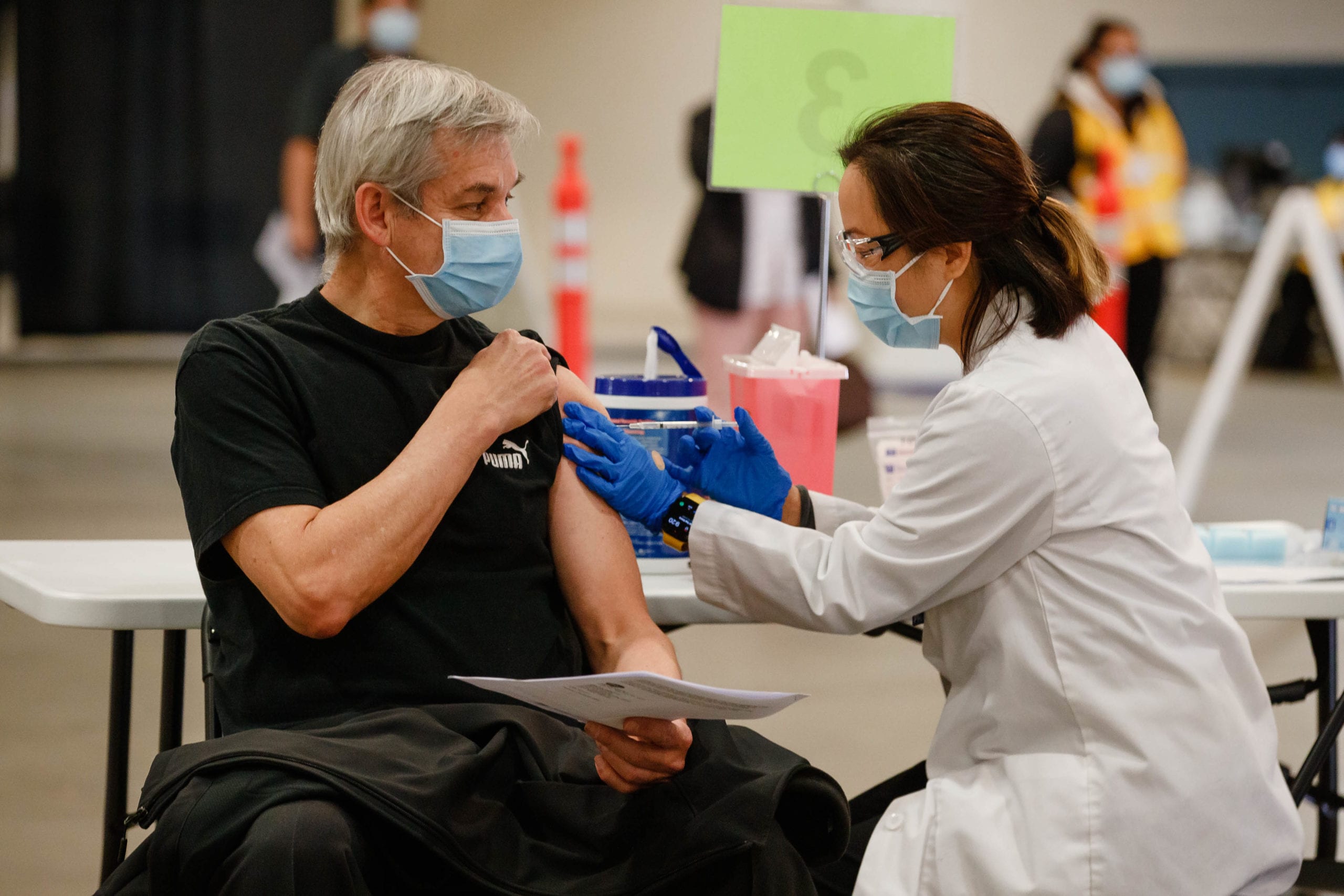
Hope for turning the tide of the coronavirus pandemic has finally arrived.
People around the world are rolling up their sleeves to receive the first doses of the just-approved COVID-19 vaccines. The medicines come at a dire moment, with the epidemic raging around the county, state and country, causing record numbers of deaths.
Here are answers to some of the most common questions about the vaccines.
If you were previously diagnosed with COVID-19, do you still need the vaccine?
Yes. Health officials recommend that you get it. It’s unclear how long naturally gained immunity from COVID-19 lasts, according to the Centers for Disease Control and Prevention. Health experts believe the vaccines will offer longer-lasting protection.
Could you spread COVID-19 asymptomatically if you are vaccinated?
Researchers do not know yet. If a COVID-19 vaccine only prevents disease, it could still allow those who receive it to be infected and spread the virus unwittingly, according to a UCLA Health article.
In other words, even if you’ve gotten the vaccine, you may be able to carry and transmit the virus without suffering or showing any signs of sickness.
Can we ditch our masks after getting a COVID-19 vaccine?
No. Health experts recommend you continue to wear a mask and practice social distancing, whether or not you’ve gotten the vaccine to prevent possible asymptomatic transmission of the disease.
Researchers do not know yet if the vaccine prevents both infection and illness and recommend following local and federal health guidelines meant to contain the spread of COVID-19.
How long will it take for immunity from the vaccine to take effect?
It typically takes a few weeks to build full immunity after the first vaccination, according to the CDC.
Can you get COVID-19 after getting the vaccine?
Yes. During the first few weeks after getting the vaccine, while your immunity is still building, you remain at risk of contracting the disease if you come in contact with the virus in the wild, the CDC says.
What are the effects of vaccines in between the first and second doses?
The first shot helps your body recognize the virus, and the second shot helps strengthen its ability to fight off an infection, according to GoodRx.
People need to get a booster shot for the Pfizer vaccine three weeks after the first dose. The Moderna vaccine requires a booster shot four weeks after the first dose.
Where can I get the vaccine?
The vaccine is available to those who are eligible at county health centers and clinics. One vaccination clinic has already been set up at the Santa Clara County Fairgrounds.
Under the county’s vaccine distribution plan, more than 20 health care providers in its jurisdiction will supply vaccines, including Stanford Health Care and Kaiser Permanente.
Will my age affect when I can get the vaccine?
Yes. If a health care facility doesn’t have enough doses to vaccinate all at-risk workers, California health officials recommend prioritizing elderly ones, starting with those older than 65 and then going to those 55 to 64, before vaccinating those younger than 55.
Meanwhile, because of the way health officials are prioritizing doses, children likely won’t receive vaccines during the first phase of distribution, county officials said early in December.
What does it cost to get the vaccine?
Vaccines are free but are only available to those who are eligible.
When can I expect to be eligible to get the vaccine?
The general public may have access to the vaccine by spring or summer of 2021. As of Dec. 29, vaccines are only available for health care workers at acute-care facilities and COVID-19 units.
Have a question about COVID-19 vaccines? Email [email protected] and we’ll get the answer.
Contact Mauricio La Plante at [email protected] or follow @mslaplantenews on Twitter.
Article From & Read More ( What to know about COVID-19 vaccines in Santa Clara County - San José Spotlight - San José Spotlight )https://ift.tt/3ryGjkO
Health
No comments:
Post a Comment